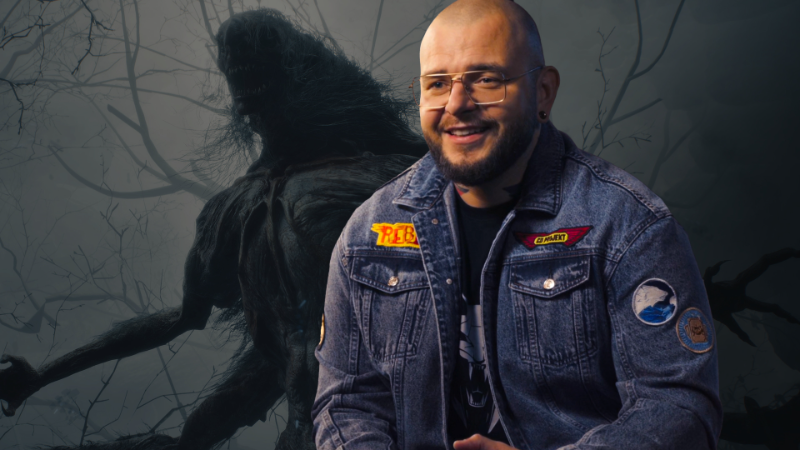Dante Knoxx is a game developer, residing the indie dream. He’s additionally 34, and has the credit standing of a “homeless ghost”.
“Getting a house or a flat in this day and age in the UK is next to impossible if you get turned down for a mortgage, or your income doesn’t allow for you to rent a property comfortably month by month,” he says. “You’re going to be looking at either being part of a house-share or living back home with your parents.”
It’s this crippling actuality that informs the fantasy of Willowbrooke Post, Knoxx’s game impressed partly by the a whole bunch of hours he’s spent in Stardew Valley. Like Stardew Valley and Harvest Moon earlier than it, Willowbrooke Post finds you inheriting a household enterprise, leaving metropolis life behind, and becoming a member of a neighborhood the place everybody is aware of your identify. While a few of us escape to realms of dragons and sorcery, a rising subgenre serves gamers determined merely for a break from trendy life.

“Modern life can be both incredibly busy and lonely at the same time,” says Zhi Xu, director of My Time At Portia. In Portia, you journey by boat to a Ghibli-like idyll the place time appears to have stopped progressing fully, and the native city is crammed with potential associates who all the time have time to cease and chat.
“We just hope people who play our game can have a truly relaxing experience and ease any nerves,” Xu says. That’s why the Chinese developer gave the game its uncommon title – the group needs you to recollect ‘your time’ in Portia – to hold it again with you into the typically overwhelming crush of up to date existence, like a reassuring pendant.
Each of those games venerate a unique kind of ‘simple’ residing. In Stardew Valley you’re taking over the operating of a farm, in Portia a workshop, and in Willowbrooke a submit workplace. But all of them share a throughline: a life with fewer uncertainties, extra time together with your ideas, and the satisfaction of working together with your palms.

“I’ve lived in a few towns that could be considered quaint in the UK,” Knoxx says. “They were very small, very intimate, and had this overbearing sense of community, where everyone knew everybody else and what was going on in their lives. Those memories as a child were a strong inspiration when it came to setting Willowbrooke where it is.”
It can be naive to counsel that rural communities are insulated from the fashionable world – one which, within the UK no less than, has devastated the native industries that when constructed cities and villages. What’s extra, there generally is a loneliness to rising up in locations the place alternatives are few and identities unsupported. With that in thoughts, it’s fascinating to see newer games on this subgenre embrace the cracks within the soil.
For Knoxx, the fantasy of Willowbrooke Post extends to capturing the passive aggression inherent in rural Britain; a world the place busybodies thrive and that neighbour you possibly can’t stand can by no means fully be prevented. One the place you may be inclined to learn non-public mail, or mess with the deal with on the parcel of a buyer you don’t actually like.

“This is a village of a few hundred people that all love and hate each other in equal measure,” Knoxx says. “I’m more about being nosy and interfering in people’s lives directly, as opposed to being a hermit and letting the world do its own thing around you.”
Nevertheless, sit in Willowbrook Post Office for lengthy sufficient and also you’ll discover the motes of mud dance within the morning solar; hear the floorboards creak and the church bell ring within the distance.
Solace sits on the coronary heart of those games, and a way of small-world possession largely unavailable to a technology of players. Each affords a house wholly yours, the place the fruits of your exhausting work are returned to you. It’s curious to notice that there’s one thing common about this fantasy: Harvest Moon got here from Japan, Stardew Valley from the US, Willowbrooke from the UK, and Portia from China.
“Everyone loves the idea of being able to build and create something for themselves, and we all want to feel that sense of belonging to a community,” Xu says.

“I think that’s very human, to get satisfaction from seeing progression from very little,” Knoxx provides. “Away from all that hustle and bustle that can kind of drown out the identity we seek to embrace.”
Ultimately, the hope is that these games gained’t function as pure escapism, however construct confidence for gamers to take again to their very own, extra advanced routines.
“Being able to pay bills within a virtual environment and maintain a healthy bank balance through wise investments shouldn’t remind you that you’re not particularly doing this in real life right now,” Knoxx says. “But instead mentally reinforce to you that you’ll be capable when the time comes.”
“What we want to tell players is that to achieve any success, you’ll have to face problems bravely in a positive way and work hard with your bare hands,” Xu says. “We’ve had a few people say that the game has helped them to relax and deal with their real-life anxiety. We’re so happy that our world has made them more positive in their daily lives.”
Source

